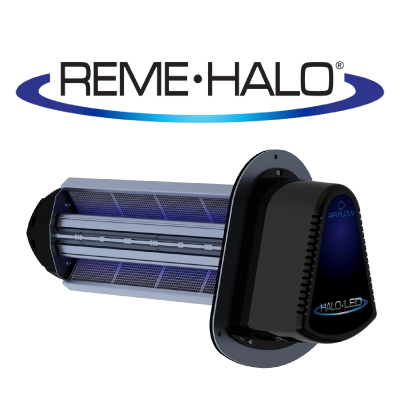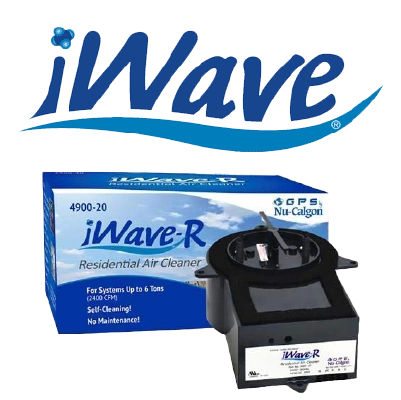Comprehensive Indoor Air Quality Products & Services
Let us help you breathe easier.
At Jeffrey A. Wilbur Plumbing, Heating & Air Inc., we understand the importance of maintaining clean, healthy air in your home. Indoor air quality significantly impacts your health and comfort, and we’re dedicated to providing top-tier services to ensure your air is as clean and pure as possible.
Whether you’re dealing with allergies or asthma, or just want to ensure your family’s well-being, our comprehensive indoor air quality services are designed to meet your needs. From air quality testing to advanced filtration systems, our experienced team is here to help you breathe easier. Contact us today to take the first step towards a home with healthier and cleaner air in Mechanicsburg, PA.
CONTACT US TODAY
Indoor Air Quality Testing
How often do you think about the air you’re breathing inside your home? Most homeowners don’t realize that indoor air can be more polluted than the air outside. Our indoor air quality testing services are designed to identify and address these hidden issues. We use state-of-the-art equipment to measure the level of common indoor pollutants, such as dust, mold, pollen, and volatile organic compounds (VOCs).
We believe in providing transparent, actionable insights. If we find any issues after your indoor air quality test, we’ll explain them in simple terms and offer practical solutions to improve your space’s air quality. Our commitment to clear, honest communication helps you make informed decisions about your indoor environment in Central Pennsylvania.

Our Indoor Air Quality Products
Once we’ve identified the issues affecting your indoor air quality, the next step is to choose the right products to address them. At Jeffrey A. Wilbur Plumbing, Heating & Air Inc., we offer a range of top-quality indoor air quality products designed to purify and enhance the air in your Mechanicsburg, PA home.
Our indoor air quality products include:
Air Cleaners:
Installed as a part of a forced-air heating and cooling system, it can help remove pollen, mold, mildew, dust mites, bacteria, and viruses. The large, efficient filters mean that maintenance is typically limited to once a year. In addition, the filters help protect your heating and cooling equipment from dust accumulation that can lead to inefficient operation and early failure.
Humidifiers and Dehumidifiers:
Help maintain a healthy and comfortable moisture balance in the home’s air, regardless of the season. During wet and rainy seasons, a whole-house dehumidifier dries the air; during dry seasons, a humidifier adds moisture. All units are built right into the heating and cooling system and serve the entire house, not just one or two rooms.
Home Ventilation Systems:
If your home is well-sealed and insulated, it may inadvertently trap air pollutants generated by building materials, furnishings, cooking, and even cleaning products. Home ventilation systems exchange stale, polluted air for fresh outside air at recommended rates without wasting energy.
Programmable Thermostats:
These are not only convenient, but they are a proven way to save up to 30 percent of your heating and cooling energy costs. Zone controls allow you to adjust the temperature of various areas within your home from a control panel that operates dampers in your forced-air heating and/or cooling system. They also help lower your energy bills by enabling you to heat or cool only the zones that you are using.
UV Lights
At Jeffrey A. Wilbur Plumbing, Heating & Air Inc., we prioritize the health and comfort of your indoor environment. We offer top-of-the-line UV lights from trusted brands like I Wave and Reme Halo. These advanced UV light systems are designed to neutralize airborne contaminants, reducing bacteria, viruses, mold, and allergens in your home. By incorporating UV lights into your HVAC system, we help ensure that the air you breathe is cleaner, safer, and more comfortable.
Tips for Maintaining Air Quality in the Home
Maintaining good indoor air quality requires ongoing effort, but with the right practices, it’s entirely achievable.
Here are some practical tips to help you keep your home’s air clean and healthy:
- Stay aware of local weather reports for news of pollution blown in from fires nearby or other areas. Many communities offer forecasts for the next day’s expected air pollution levels. Levels predicted to be orange, red, or purple days signal unhealthy levels of ozone. However, pollution from fires may bring unhealthy levels of soot or fine particle pollution, which may be on days when ozone levels are not high.
- On days when air pollution from fires (or other sources) is predicted to be high, limit time spent outdoors and avoid exercise outside, especially if you have asthma, lung disease, or are a child or senior.
- Use a high-efficiency furnace filter and replace it every two to three months. A high-efficiency filter not only protects the furnace but can also capture up to 30 times more pollutants such as smoke, pet dander, and pollen than standard fiberglass filters.
- So that air is always passing through the filter, run the furnace fan continuously regardless of the outdoor temperature. To do so, set the furnace thermostat to the “on,” rather than the “auto,” position.
- Have a professional inspect the furnace once a year to make sure that the air intake is adequate and the unit is operating at peak efficiency. A smooth-running furnace helps the filter capture more soot particles in the home.
- Prohibit smoking in the home.
- Make sure gas cooking appliances are vented to the outdoors.
Jeffrey A. Wilbur Plumbing, Heating & Air Inc. offers comprehensive services and products to help you achieve this goal. Contact us today to schedule a consultation or to learn more about how we can help you breathe easier in your home in Mechanicsburg, PA, and surrounding areas.

Why Choose Jeffrey A. Wilbur Plumbing, Heating & Air Inc.
Family Owned & Operated Since 1986
Background-Checked Employees
Free Estimates on Installations
We Proudly Service Mechanicsburg, PA and Surrounding Areas
- Boiling Springs
- Camp Hill
- Carlisle
- Duncannon
- Dillsburg
- Enola
- Etters
- Goldsboro
- Harrisburg
- Hershey
- Highspire
- Lewisberry
- Marysville
- Mechanicsburg
- Middletown
- Mt. Holly
- New Cumberland
- Newville
- Shermansdale
- York Springs
- Camp Hill
- Carlisle
- Dillsburg
- Enola
- Etters
- Harrisburg
- Hershey
- Highspire
- Lewisberry
- Marysville
- Mechanicsburg
- Middletown
- Mt. Holly
- New Bloomfield
- New Cumberland
- Newville
- Shermansdale
